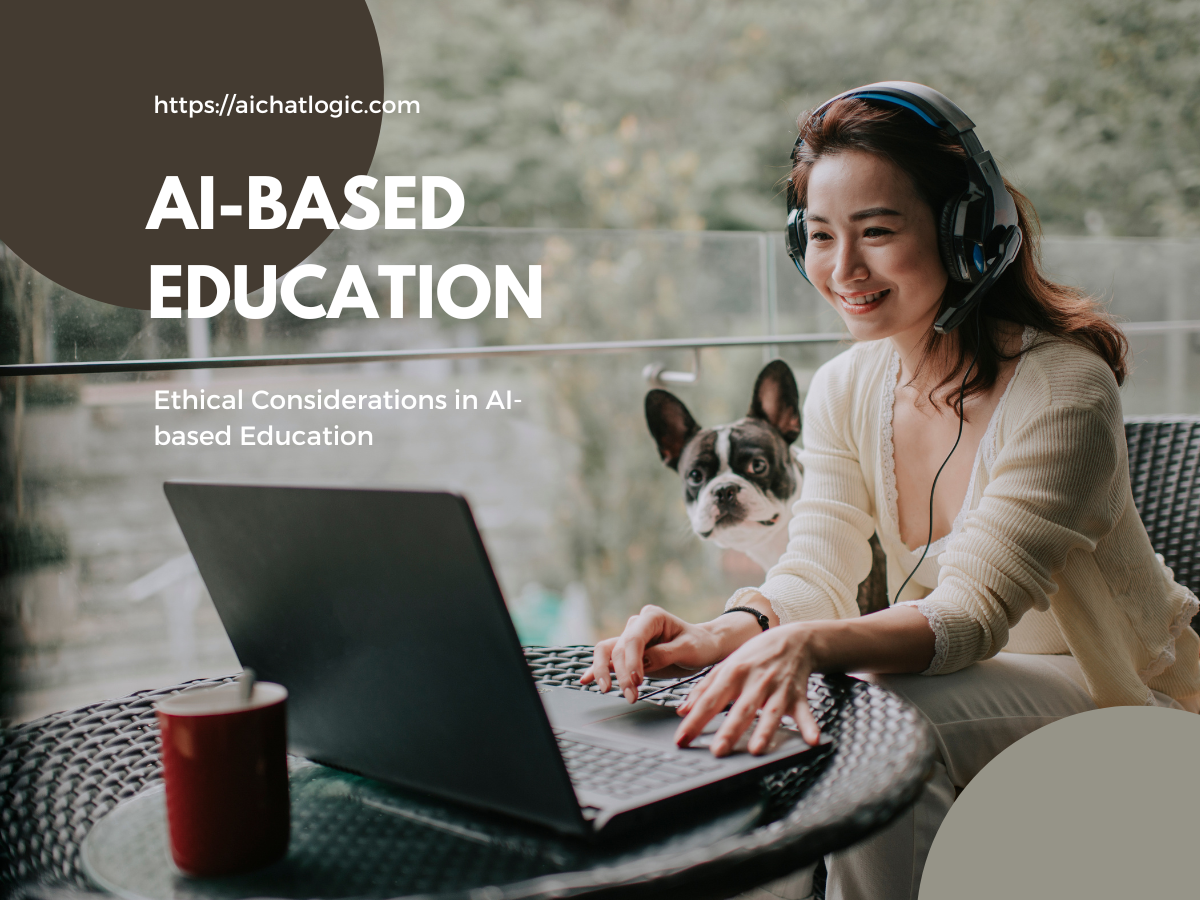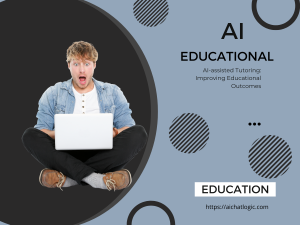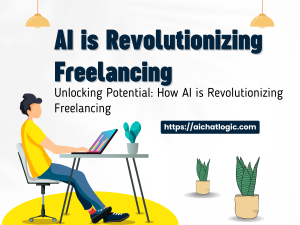1. Introduction
AI-based education refers to the integration of artificial intelligence technologies into educational systems. It encompasses various applications, such as intelligent tutoring systems, adaptive learning platforms, and automated grading systems. These technologies have the potential to enhance the learning process by providing personalized content, immediate feedback, and tailored recommendations. However, it is essential to consider the ethical implications that arise from the use of AI in education.
2. The Benefits of AI in Education
AI-based education offers several advantages that contribute to improved learning outcomes. Personalized learning platforms can adapt to individual students’ needs and learning styles, providing customized content and pacing. This individualized approach helps students learn at their own pace, fostering a deeper understanding of the subject matter.
Furthermore, AI-powered assessment and feedback systems can provide instant and objective evaluations, reducing the workload on educators and enabling timely interventions. These systems can identify knowledge gaps and provide targeted remedial measures, enhancing student performance.
3. Privacy and Data Security Concerns
One of the significant ethical considerations in AI-based education revolves around privacy and data security. Educational platforms powered by AI collect vast amounts of student data, including personal information, learning patterns, and performance metrics. It is crucial to ensure that this data is handled securely, with strict adherence to privacy regulations.
Educational institutions must implement robust data protection measures, including encryption, anonymization, and access controls. Clear consent mechanisms should be in place to inform students and parents about data collection and usage. Transparency regarding data practices is vital to build trust and maintain ethical standards.
4. Bias and Discrimination in AI Systems
AI algorithms are trained on vast amounts of data, which can introduce biases into the system. If the training data is biased, the AI systems may perpetuate or amplify existing social, gender, or racial biases. In the context of education, biased AI systems could lead to unequal access to opportunities or reinforce stereotypes.
To mitigate bias and discrimination, developers and educators must actively ensure that they incorporate diversity and representativeness in the training data. They should regularly conduct audits and evaluations to identify and rectify any biases that may arise in the AI systems. Furthermore, they should implement transparent decision-making processes to tackle concerns and challenges associated with bias in AI-based education.
5. Transparency and Explainability
AI algorithms often operate as “black boxes,” making it challenging to understand the reasoning behind their decisions. In the context of education, it is crucial for students and educators to have transparency and explainability regarding how AI systems assess and provide feedback.
Developers should prioritize creating AI models that are interpretable and provide explanations for their recommendations. This transparency allows educators and students to understand how the AI system arrived at a particular outcome, fostering trust and informed decision-making.
6. Autonomy and Human Interaction
While AI can provide personalized learning experiences, it is essential to maintain a balance between technology and human interaction. Education is not just about acquiring knowledge; it is also about fostering critical thinking, creativity, and social skills. Over-reliance on AI systems may limit opportunities for collaborative learning, face-to-face interactions, and human mentorship.
Educators should actively ensure that they use AI-based education systems as tools to support and enhance teaching, rather than allowing them to replace human involvement. A blended approach that combines AI technologies with human interaction can offer students the best educational experience
7. The Role of Educators
In the era of AI-based education, the role of educators becomes even more critical. Teachers play a crucial role in guiding and mentoring students, providing emotional support, and instilling ethical values. While AI systems can assist with content delivery and assessment, educators bring a human touch to the learning process.
Educators should receive appropriate training and professional development to effectively use AI technologies in the classroom. This training should focus not only on technical aspects but also on ethical considerations and responsible use of AI in education.
8. Ensuring Ethical Guidelines in AI-based Education
To address the ethical considerations in AI-based education, it is essential to establish clear guidelines and standards. Educational institutions, policymakers, and industry experts should collaborate to develop ethical frameworks that govern the design, development, and deployment of AI systems in education.
The frameworks should address issues such as privacy, bias mitigation, transparency, and accountability. Educational institutions, policymakers, and industry experts should conduct regular audits and evaluations to ensure compliance with ethical guidelines and promptly address any identified issues.
9. The Importance of Continuous Evaluation
As AI technologies evolve, continuous evaluation and monitoring are crucial to ensure ethical and effective use in education. Ethical considerations should be an ongoing part of the development process, with regular assessments of AI systems’ impact on students, educators, and educational outcomes.
Evaluations should include assessing the effectiveness, fairness, and inclusiveness of AI-based education systems. Stakeholders, including students, parents, and educators, should provide feedback to inform and enhance the iterative improvement of AI technologies.
10. Overcoming Challenges: Collaboration and Regulation
The ethical considerations in AI-based education are complex and multifaceted. Overcoming these challenges requires collaboration among various stakeholders, including educators, policymakers, developers, and researchers. Together, they can develop solutions that prioritize both technological advancements and ethical standards.
Regulatory bodies should play a crucial role in ensuring compliance with ethical guidelines. They can establish standards, conduct audits, and enforce accountability to prevent unethical practices in AI-based education.
11. Conclusion
AI-based education holds immense potential for transforming the learning experience and improving educational outcomes. However, ethical considerations must be at the forefront of its development and implementation. Privacy, bias, transparency, human interaction, and continuous evaluation are essential aspects that demand careful attention.
By addressing these ethical concerns and fostering collaboration among stakeholders, we can create an AI-based education system that empowers students, supports educators, and upholds the highest ethical standards.
FAQs
1. How does AI-based education benefit students? AI-based education offers personalized learning experiences, immediate feedback, and tailored recommendations, leading to improved learning outcomes and a deeper understanding of the subject matter.
2. What are the privacy concerns associated with AI in education? AI systems collect vast amounts of student data, raising concerns about privacy and data security. Measures should be implemented to handle data securely and ensure transparency in data practices.
3. How can bias in AI systems affect education? Biased AI systems can perpetuate inequalities, limit access to opportunities, and reinforce stereotypes. Regular audits and diverse training data can help mitigate bias in AI-based education.
4. What role do educators play in AI-based education? Educators play a crucial role in guiding students, providing emotional support, and instilling ethical values. They should receive training to effectively use AI technologies and maintain a balance between technology and human interaction.
5. How can ethical guidelines be ensured in AI-based education? Collaboration among educational institutions, policymakers, and industry experts is vital to establish ethical frameworks and guidelines. Regular audits and evaluations should be conducted to ensure compliance and address any identified issues.










+ There are no comments
Add yours